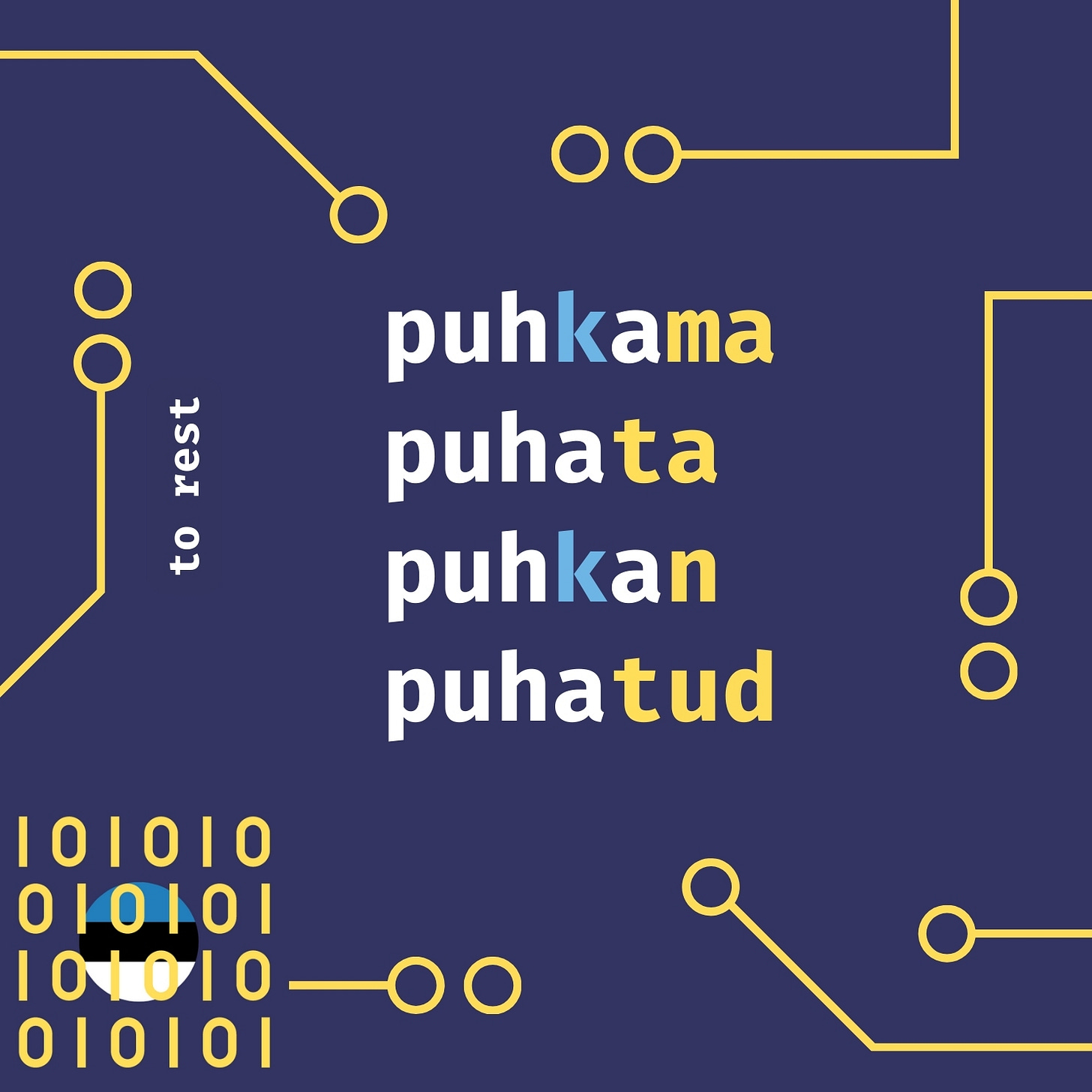Vocab: puhkama
to rest
to rest, to relax, to regain strength by enjoying a relaxed state, to take a vacation from work, to be on holiday
Building blocks
puhka - rest
-ma - infinitive ending
The exact origin of the Estonian verb "puhkama" (to rest) is unknown. But it might be connected with the Proto-Finnic word puhkadak (“to huff”).
How to use it
Resting:
"Ma tahan pärast pikka tööpäeva puhata." (I want to rest after a long day of work.)
Taking a vacation:
"Mitmed töötajad puhkavad suvel." (Several employees are taking a vacation in the summer)
To rest your body parts:
"Puhkan peale arvuti kasutust silmi." (I rest my eyes after using the computer.)
To be laid to rest:
"Sõduri surnukeha puhkab siin kalmistul." (The soldier's body rests here in the cemetery)
Things to note when using puhkama:
Whom or what you are taking a rest from is in the Elative case (ending -st)
Let’s see this case in use ⬇️
Examples
Õpetaja puhkas pidevast mürast
Literally: “Teacher rested constant-from noise-from”
Idiomatically: “The teacher rested from the constant noise”
Õpetaja - Noun - Nominative Sg, "Teacher"
puhkas - Verb - 3P Past Sg, "rested"
pidevast - Adjective - Elative Sg, "constant-from"
mürast - Noun - Elative Sg, "noise-from"

